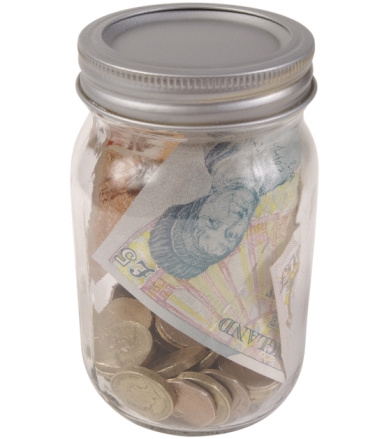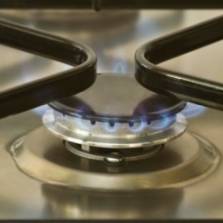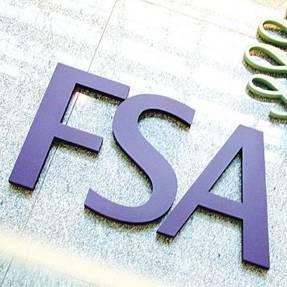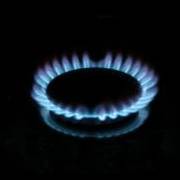 Great swathes of the nation are overpaying on gas and electricity and after this winter's hikes face bills up to 20% higher than last year. Yet switching can mitigate these rises, cutting costs by £300+ over the year, plus special links get up to £30 cashback or a crate of wine on top.
Great swathes of the nation are overpaying on gas and electricity and after this winter's hikes face bills up to 20% higher than last year. Yet switching can mitigate these rises, cutting costs by £300+ over the year, plus special links get up to £30 cashback or a crate of wine on top.
And this is easy to do. The only major change is price and customer service. You keep the same gas, electricity, pipes, meters and safety. This guide takes you through it in minutes …
In this guide
Best Buys: Switch & get cashback
Also see Cheap Prepaid Gas & Elec & Energy Mis-selling: Get money back
LATEST NEWS: 12 JANUARY 2011 British Gas, EDF & SSE shave prices – switch & save £300+
Latest Energy News
- Energy prices still way higher than summer despite cuts
13 January 2012 - Npower to cut gas prices by 5% from next month
13 January 2012 - British Gas cuts electricity prices by 5%
12 January 2012 - EDF Energy cuts gas bills by 5%
11 January 2012
See all news tagged 'Energy'
All the big six energy suppliers hiked prices by up to 20% at the end of 2011. Now British Gas, EDF Energy and SSE (includes Atlantic, Scottish Hydro & SWALEC) have announced they will shave prices, as wholesale prices are down.
British Gas will trim 5% off electricity prices, effective immediately, EDF 5% off off gas from 7 Feb, and SSE 4.5% off gas from 26 March. While this trimming is welcome, most people should still compare and switch to save much more.
Will others' prices drop?
British Gas, Eon, Npower, SSE and Scottish Power have all promised some form of winter price freeze. Yet as energy companies are like sheep, it's likely the rest will follow British Gas, EDF and SSE, and trickle their prices down a little too. However, it is very unlikely the cuts will come close to reversing the mammoth recent hikes.
Switch and save over £300
For most people, the small cut in rates is a drop in the ocean compared to the savings from ensuring they’re on the cheapest tariff.
Outrageously, a typical house still pays £1,350 a year on a standard tariff, but someone on the very cheapest tariff would pay £1,030 for the same usage. . So anyone who’s not changed since the price rises should compare & switch now to reduce what they will pay.
Normally when there are price moves we say “don’t switch”, as it’s not a level playing field to compare. Yet here the moves are small compared to the possible savings. Plus as prices are dropping, the worst that can happen is you switch and save, but not to the ultimate deal. As we’re still in mid-winter, the sooner you cut costs, the better.
Switching saves you money but may not cut your bills
The savings talked about are compared to “what you would’ve paid” not “what you used to pay”. On the back of last year’s huge price hikes, don’t expect switching to actually cut your bill – it will most likely just prevent the massive hikes.
Other Home & Energy Articles
Is it time to switch?
When it comes to switching, timing's crucial. Here's the current status:
MOST SHOULD SWITCH NOW!
For most people, the latest small cut in rates by British Gas, EDF and SSE are a drop in the ocean compared to the savings from ensuring they’re on the cheapest tariff.
Outrageously, a typical house still pays £1,350 a year on a standard tariff, but someone on the very cheapest tariff would pay £1,030 for the same usage. So anyone who’s not changed in the last year should compare & switch now to reduce what they will pay.
Normally when there are price moves, we say “don’t switch”, as it’s not a level playing field to compare. That is still true here, yet the price moves are small compared to the possible savings for most. So while this isn’t the perfect time to switch, the downside of doing it now is limited. For all but regular switchers who play the market, it’s better to do it now than not at all.
Plus as prices are dropping, the worst that can happen is you switch and save, but not to the ultimate deal. As we’re still in mid-winter, the sooner you cut costs, the better.
At the end of last year all of the big six providers hiked prices for both gas and electricity by up to 20%. Now three of the big six have announced they will shave prices (see full company-by-company changes).
Latest movers & shakers
2010-12 rises and cuts by provider
Price changes vary not just by company, but by region, and there can be huge variances. The following are the most recent average changes for each major supplier.
Consider that when you use a comparison site, if price rises have been announced but are yet to come into force, you'll get the 'after-rise' price, as comparison services incorporate the new costs when they're announced, not the moment they happen.
- Scottish Power. 19% gas, 10% elec rise (1 Aug 2011)
Scottish Power announced a price hike of 19% for gas and 10% for electricity which came into effect on 1 August. The hikes included all variable tariffs, including those on its social tariff and pre-payment meters, but not those on fixed or capped tariffs.
Before this, Scottish Power hiked prices by 2% on gas and 8.9% on electricity in Nov '10. The hike included all tariffs, except its fixed/capped products and its over-60s social tariff, Fresh Start.
- British Gas & Scottish Gas. 5% elec cut (12 Jan '12). 18% gas & 16% elec rise (18 Aug 2011)
On 12 Jan 2012 British Gas has announced an average 5% reduction in its standard electricity prices, effective immediately. British Gas hiked gas prices 18% and electricity prices 16% on 18 August 2011. It affected all customers, barring those on fixed tariffs but including those on pre-payment meters and its social tariff, Essentials.
Before that, British Gas hiked both gas and electricity prices by 7% on average from 10 Dec; the 300,000 customers on BG's Essentials tariff weren't affected.
- Scottish & Southern Energy (SSE). 4.5% gas cut (26 March '12). 18% gas & 11% elec rise (14 Sep '11)
Includes SWALEC, Southern Electric, Scottish Hydro & Atlantic
Scottish and Southern Energy (SSE) will cut gas prices by 4.5% from 26 March. Before that it hiked gas prices 18% and electricity prices 11% on 14 September. It affected all customers, except those on fixed deals. It also stated it wouldn't increase prices again until at least 1 August 2012.
Before this, SSE implemented a gas-only price rise of 9.4% for 1 Dec 2010 across all standard tariffs.
In the prior round of cuts, SSE dual fuel rates fell by 4%, single gas by 7% and pre-payment rates by 9% on 29 Mar 2010.
- Eon. 11.4% elec, 18.1% gas hike (13 Sep 2011)
E.On hiked electricity 11.4% and gas 18.1% on 13 September 2011. It didn't include those on its social tariff WarmAssist or anyone on a fixed product.
Previously, it increased prices by 9% on electricity and 3% on gas prices from 4 Feb 2011.
- Npower. 15.7% gas & 7.2% elec rises (1 Oct 2011)
Npower upped the cost of gas by 15.7% and electricity by 7.2% from 1 October 2011.
Before this, it hiked gas and electricity prices by an average 5.1% on 4 Jan 2011. - EDF Energy. 5% gas cut (7 Feb 2012). 15.4% gas, 4.5% elec rise (10 Nov 2011)
EDF Energy was the last 'big six' provider to announce hikes - 15.4% on gas and 4.5% on electricity from 10 November 2011. But it now says it will cut gas prices (not electricity) by 5% on 7 Feb 2012.
Before this, it hiked gas prices 6.5% and electricity 7.5% on 2 March 2011 - after initially pledging to hold standard prices until March, in order to retain competitive advantage in the short-term and attract switchers.
Switch & get added ca shback
Time To Switch Alerts Service: We'll warn you in the free weekly email whenever the switching status changes
The easiest way to find which is cheapest is to use a comparison site. Tell it where you live and as much info as possible about your energy bills, and it tells you which company's cheapest. If you don't have your bills handy for usage figures, it'll estimate.
Yet don't go direct. Instead, specifically click these special links to the comparison sites, and within 45-90 days you get paid cashback or freebies on top, provided they can switch you (see why they pay). If you're confused about what type of tariff to pick, see the Q & A below.
If the above deal doesn't work for you, pick from the full list of comparisons and freebies below to find your cheapest tariff.
Overall winner: £15 cashback per switch Energyhelpline

Our top pick, based on historical reliability, feedback and research, is Energyhelpline*. It pays £30 cashback for switches to separate gas and electricity or £15 for dual fuel switches.
While that's our overall top comparison, if you're going for dual fuel, which means getting gas and electricity from one provider, bigger freebies are possible (one per household).
Yet don't assume dual fuel is always cheapest. Check whether getting separate gas and electricity can undercut it, as it often can. The following picks are based on a mix of feedback and freebie.
Dual Fuel Switching Crate of Wine
 Go via this uSwitch* link and if it can switch you it gives a totally free 8 bottles from Virgin wine plus 4 wine glasses (worth c. £40) to your door. Don't confuse this with its £40 off £80 spend deal if you go to it direct. Expect delivery 6-12 weeks after your supply has gone live.
Go via this uSwitch* link and if it can switch you it gives a totally free 8 bottles from Virgin wine plus 4 wine glasses (worth c. £40) to your door. Don't confuse this with its £40 off £80 spend deal if you go to it direct. Expect delivery 6-12 weeks after your supply has gone live.
Dual Fuel £30 cashback
 Go via this Moneysupermarket* link and if it can switch you it will send you a BACS transfer (ie pay your bank account) for £30. Expect it 6-12 weeks after your supply has gone live.
Go via this Moneysupermarket* link and if it can switch you it will send you a BACS transfer (ie pay your bank account) for £30. Expect it 6-12 weeks after your supply has gone live.
Dual Fuel £40 cashback
 Go via this Simplyswitch* link and if it can switch you it will send you a BACS transfer (ie pay your bank account) for £40. Expect it 6-12 weeks after switching.
Go via this Simplyswitch* link and if it can switch you it will send you a BACS transfer (ie pay your bank account) for £40. Expect it 6-12 weeks after switching.
However it's important to be aware we have had reports of non-payment of the cashback, it says it's fixed, but please let us know).
Key things you need to know about switching
Pay by monthly direct debit is cheapest
Fixed monthly direct debit payments, where you pay a fixed estimate each month, save you 5-10%, as companies are sure you won't default and they earn interest on any overpayments. These should be refunded at the end of the year.
Little changes except the cost & customer service
Don't worry too much about switching. Only customer service, billing and, most importantly, prices change. The pipes, circuits, wires, safety coverage and actual gas and electricity flowing through your home are all the same.
The new supplier performs the switch, and all you do is take a meter reading. Of course, there've been many switching 'horror stories' and sadly these still happen, but for most it's a smooth process.
Savings are compared to 'what you would've paid
A typical house paying £1,350 on a standard tariff can slash it to £1,030 switching to the cheapest deal. Yet remember, we've just had nearly 20% price hikes. This saving's based on what you would be paying, not what you were paying. The actual cash you need to shell out won't drop much (some not at all). This is one reason people have felt diddled after past switching, even though they were actually much better off.
Prepay customers can save too
Prepay customers can save too. Many on prepay meters think switching isn't for them. Well, there are still savings to be had and you may even be able to ditch a prepay meter for free. See the Cheap Prepaid Gas & Electricity guide.
If you're in debt you may need to pay it
If you owe anything to your existing provider when you switch, you may still need to pay it. While this doesn't increase costs, it can be a cash flow nightmare.
Full cashback info
More Cashback info, top picks & possible cash boost.
When is the cashback paid?
Cashback's usually paid 45 to 90 days after you sign up, but remember it's only paid when the comparison service actually administers the switch for you, otherwise it doesn't earn anything, so it can't cut you in (beware, as some of the below will ask you to fill in a claim form to get your voucher).
Things can and do sometimes go wrong, so don't count the cash as yours until it's in your pocket.
Detailed list of sites offering cashback.
Our top picks in the article are assessed on a mix of feedback from MoneySavers, cashback (or wine), inclusivity of tariffs, company strength (as the cashback comes from the comparison site, so you're reliant on it) and functionality. Here's a more detailed explanation:
The overall MSE top picks
Over the years, Energyhelpline* has consistently received good feedback, has some of the most inclusive functionality and delivers quickly when we suggest improvements.
It pays cashback of £15 per switch, which means switch to dual fuel (gas and electricity together) and it's £15, or switch to a separate gas and electricity supplier and it's £30 (joint highest).
For dual fuel we also include Simplyswitch* (We've had reports of non-payment. It says it's fixed, please let us know), Moneysupermarket* which offers £30 cashback or uSwitch* which offers 8 bottles of wine and 4 wine glasses (worth c. £40).
List based purely on freebie/cashback value
This is simply a list based on the promised cashback on offer, and excludes any company feedback or other criteria we use in our top picks.
Just an electricity switch: Moneysupermarket* pays £17.50 cash, or Energyhelpline* pays £15 cash, while SimplySwitch* pays £20 (it will be sent out automatically within 90 days, one per household).
Switch to separate gas & electricity providers: You can get £34 via Energylinx* if you're switching to separate gas and electricity suppliers, or £30 (£15 per fuel) via Energyhelpline* and UK Power*.
Or again SimplySwitch* gives £40 (£20 per fuel) in cash. The cash will be sent out automatically within 90 days, one per household.
Dual fuel: This means you get gas and electricity from the same supplier. SimplySwitch* pays £40 cash, Energylinx* pays £34 in cash, Moneysupermarket* pays £30 in cash and SwitchwithWhich* pays £20. Energyhelpline* only pays £15 in this scenario. 
Get a voucher for 8 bottles of wine & 4 wine glasses.
Rather than cash, uSwitch* gives a voucher for 8 bottles from Virgin Wines plus 4 wine glasses when you switch to a dual fuel tariff. You get four red and four white, max of one per household, and you don't need to buy anything else from Virgin to redeem it.
Officially, the wine's worth over £50, yet roughly equivalent plonk can be had from supermarkets for about £40 (the MSE Team's verdict on it was, some good, some yuck!)
Ensure you go via the above link to get the deal, because if you go directly to uSwitch, you'll only get a different voucher. This looks similar, but it's just £40 off, not actually free wine.
| Cashback Energy Service | Switch to Separate Gas & Electricity Suppliers | Switch to Dual Fuel |
|---|---|---|
| Energyhelpline* | £30 | £15 |
| uSwitch* | - | 8 bottles of wine worth c.£40 |
| UK Power* | £30 | £20 |
| Energylinx* | £34 | £34 |
| Moneysupermarket* | £17.50 | £30 |
| SimplySwitch* | £20 | £40 |
| TheEnergyShop* | - | £20 |
You may've noticed that there's no mention of the charity-donating comparison switch sites, such as Switchandgive, which pays £20 to charity for dual fuel switching.
That's because, if you switch via the sites above, get the cashback and donate it directly to charity, the tax advantages of you donating mean the charity gets more anyway (see the Increase your Charity Giving guide).
It may be possible to INCREASE the cashback ...
Occasionally, some energy companies pay even more if you switch directly via their websites or via cashback websites. Therefore, for the ultimate finesse, first use the comparison services to find the cheapest, then check the winner's website direct to see if it offers more cashback.
Also check if you can get more going via a cashback website both for the energy provider itself and, on rare occasions, for going to the comparison site - use the Cashback Sites Maximiser for this.
Important! Don't miss the best times to switch Get MoneySavingExpert's free, spam-free weekly email full of guides & loopholes
The eight energy bill cut ting rules
It's not just about doing a comparison. Who you use and how you pay can cut your bills substantially. Here are the eight key rules:

- Grab £1,000s of grants to i nsulate your home
Properly insulating your home can save around £200/year. See the Free Insulation guide to see what you can get. There's a vast range of grants available for improving home heating and insulation, just go to the Energy Saving Trust's Energy grant search. For more grants available for all types of home improvement, see the full Grant Grabbing guide. -
Don't assume dual fuel is always cheapest
Logically, dual fuel (gas and electricity from the same supplier) should be cheaper and it often is, yet not always.
During your comparison, also compare the cost of the cheapest dual fuel supplier with separate cheap gas and cheap electricity suppliers. -
Do switch to monthly direct debit
Fixed monthly direct debit payments, where you pay a fixed estimate each month, save you 5-10%, as companies are sure you won't default and they earn interest on any overpayments. These should be refunded at the end of the year. -
Do a meter reading every time
Every time you receive a bill, do a meter reading. Don't rely on your energy provider's estimate; these are often way out. If they're under-billing, you'll have a big whack to pay at the end of the year. If they're over-billing, then they've unfairly got your cash.
If your direct debit is way off kilter, call up and request it's changed. You have a range of rights to ensure it's correct. See the full Energy Direct Debits guide for template letters to help. -
Do switch to your company's internet tariff
It'll usually save you up to 10% over the standard tariff, and all it really means is you get your bills emailed. -
Avoid pre-payment meters if you can
While a push from the government means it's getting better, those on pre-payment meters are still pretty hard done by, certainly compared to those who pay by direct debit. If possible you should try to switch to a billed meter. You may have to pay to get one, but the savings are usually worth it.
Often they won't let you though, due to credit score or income difficulties. For full info on how to ditch a prepayment meter for a credit meter, or if you can't, save on a prepay meter see the full Cheap Prepaid Gas & Elec guide. -
Consider a financial hardship tariff
If you're in financial trouble some companies offer special cheaper tariffs, which help. However you can't assume these will be the cheapest. As you're online (or you wouldn't be reading this), it's possible the cheapest web tariff will beat many hardship deals. - Use less energy
It's not just which company you pay, but how much you use. Cutting energy is a mix of big and little things.
Turn down the thermostat and wear jumpers, turn lights off when you leave a room, use energy saving lightbulbs, defrost the fridge and check it's not on too high, don't leave electrical goods on standby.
For more info, read the Energy Saving Hunt and see the Energy Saving Trust website.
Questions & Answers
Gas and Electricity: Q&A; with Martin Lewis
Filmed on 28 April 2011
Picking the right tariff
The big question: Should I fix?
Should I fix?
A number of energy suppliers offer fixed or capped tariffs that let you lock into a fixed price for a set period. A cap ensures prices can't rise beyond a limit, though they could still fall. Of course, it's the price you pay for units of energy that are fixed, not the actual amount you pay, which still depends on how much gas and electricity you use.
Most cheap fixes had been disappearing though with the price trend now slightly downward, some more may start to reappear – we'll let you know in the weekly email if any arise.
Whether to fix or not is a personal decision, but two main factors should influence your decision. Firstly, what's happening with prices and, secondly, whether you can afford a price rise.
What's happening with prices? Jan 2012
At the end of last year all of the big six providers hiked prices for both gas and electricity by up to 20%. Now British Gas, EDF Energy and SSE (includes Atlantic, Scottish Hydro & SWALEC) have announced small price cuts.
British Gas will shave 5% off electricity prices, effective immediately, EDF 5% off gas from 7 Feb, and SSE 4.5% off gas from 26 March. It is likely the other providers, which have already pledged to freeze prices over winter, will follow and shave their rates too.
There's no guarantee what will happen with prices after this, though pundits suggest in the very long-term prices are only going one way and that’s up. Wholesale prices are down in general, so there could be bigger cuts, but it is dependent on worldwide markets and they move quickly, so there’s no guarantee there won’t be more price rises later in the year.
Can you afford a price rise?
Getting a fixed tariff is an insurance policy against prices rising, however you pay for that by the fact you're locked into the tariff for a set period while you also pay a premium for the surety.
Therefore, the first major thing to consider is how important price surety is for you.
If you simply couldn't afford prices to rise any further, that makes fixing a much stronger proposition and you should consider it, even if you'll end up looking back with hindsight to see it wasn't the cheapest deal.
How much will you save by fixing?
The final bit of the decision is about the current cost of the cheapest fix (always compare - this isn’t about any old fix). If you can save substantially by fixing, then you get the boon of a guarantee against prices rising and will shell out less.
Yet if the savings are smaller or you even have to pay more to fix, then it really does come down to your attitude. Remember though, in the worst case scenario that you fix and prices drop so much that your fixed tariff isn’t competitive, you can usually pay an exit fee of £20-£40 per fuel to leave.
Fix watch! What cheap fixes are left?
The overall trend is that cheap fixes are disappearing though some providers have fought back with short-term offers (we'll let you know in the weekly email if any arise).
Which fix to go for?
While over the long term (5-20yrs) prices will almost certainly rise, in the near term it's all about fickle worldwide energy markets and therefore your attitude to risk. For longer fixes, balance the fact prices could drop, so you may need to pay an early exit penalty (£40-£100) to switch away against the safety of long-term lock-in, in case there are more rounds of price hikes after the current one. Here are the main contenders:
As a benchmark, the standard tariff for a typical home is currently about £1,345/year. Yet...
On a 1yr fix, Npower's Go Fix 10 April 2013 costs a typical home about £1,080/year.
On a 3yr fix, Scottish Power Fixed Price Jan 2015 costs a typical home about £1,210/year.
Watch out for exit fees
Some providers charge exit fees if you leave before the fix/cap ends, so this is a long term decision. If prices drop very steeply, it can be worth ditching and switching if the savings made will dwarf the penalty. You may be able to leave your contract without paying exit fees; see the Escape energy lock-ins news story.
Don't worry about moving house, though - nearly all providers will allow you to take your existing tariff with you when you move, but double check for specific tariffs.
I compared and fixing saves me £150 a year. Why?
Since the first price hike from Scottish Power on 7 June, we've been saying those on standard tariffs should "fix now if you can't afford hikes" as it protects from rises for a set time. Many compared and reported back they were shocked they'd save big and get the price lock-in. Why? Simply because standard tariffs are massively over-expensive.
Are the new prices on comparison sites?
All results are now based on the POST-rise prices, even if prices aren't in effect yet so if you're comparing your results will show how much it will cost after the price rise.
Yet if you're an existing customer this can actually cause a problem as not only are your results based on new prices, but also the figure you enter for your usage too (regulations force them to do it this way).
So it's better to use the Kilowatt hours figure on the bill, not cost, otherwise the sites will inaccurately assume the past bill was accrued at the post-rise prices and thus underestimate usage.
Should I call my existing provider to fix?
No, no, no. This isn't about grabbing any fix. That could leave you locking-in at a high cost - it's about locking-in on the cheapest fix, which may be with another provider.
How do I find the cheapest fix?
The cheapest depends on location and usage, so use a comparison site and click 'show only fixed tariffs':
Top Comparison: Energyhelpline* pays £15 cashback via this link per gas, elec or dual switch.
Dual Fuel: MoneySupermarket* pays £30 cash, uSwitch* a crate of wine
For much more detail on the top comparison sites see the Switch & Get Cashback section.
The comparison showed me it'll cost MORE to fix?
If you're already on a super-cheap online tariff this is likely to be the case. However the current cheapest fix is on average only around £20 more than the cheapest online tariff plus you get the surety of knowing your prices won't go up again. You need to balance savings now against price certainty.
Can I beat exit fees & ditch my current fix to fix again?
Past fixes are likely to be much cheaper than current ones, so generally stick with them (always compare to check though).
Yet if you've only a short time left, the risk of waiting is that today's cheapest fixes will be replaced by costlier versions. You may also have exit fees, however if you're quick you can escape the exit fees by using a little-known loophole.
Where a supplier puts prices up, because that results in a contract change that's detrimental, rules from regulator Ofgem mean many consumers don't need to pay that penalty as long as they inform their power firm they wish to switch before the increase. Full details of how to do this in the Escape energy lock-ins as prices soar news story.
However this of course doesn't apply to penalties for leaving fixed tariffs as on these prices won't go up.
How long should I fix for?
Most fixes are 12-18 months, but longer ones, at higher rates, exist.
In the very long term, say five to 20 years, energy supply issues and a push for environmental efficiency mean it is almost certain prices will rise substantially.
Yet in the shorter run, prices are partially reliant on worldwide energy prices and that is a market place which sees fluctuations. So while prices have just risen, it is possible at sometime within the next year or two they could drop again (or rise again) so a longer term fix isn't necessarily a no-brainer if you need to pay more for it.
Therefore make the real decision based on your attitude to risk. If price surety's more important than the very cheapest prices, fix for a longer period.
If wholesale prices drop so much that prices fall again, is fixing a mistake?
Remember while prices have just risen, even if they later drop, they would have to drop by even more, before this isn't worthwhile. For a full explanation of the impact of future price falls on the desirability of fixing see Martin's If energy prices DROP, is fixing still right? blog.
We're due to move next month, how can we compare?
If you can get an idea of usage figures from the previous homeowners, brilliant, as these figures will give you the most accurate comparison. If not, some comparisons offer a movers' service. Simply answer some basic questions about the house, e.g., size, appliance use, and it tells you the likely cheapest provider.
Until you switch the energy supplied to the house will be with the supplier the previous owners used.
I'm in the process of switching to a new supplier, but haven't fixed. Is it too late?
When you switch supplier you have a seven day cooling off period (14 days if you're switching to Npower). So if you're within this time frame, do a new comparison looking for a fixed deal and if it's with a different supplier you can switch again without a problem.
If it's with the same provider or if you've missed the cooling off period, call the supplier you're due to move to and ask it to switch you to its cheapest fixed tariff (use a comparison to check). Otherwise you'll have to wait until the supply is live before switching again.
I am moving home, can I take my fix with me?
If you're moving, most providers will allow you to take the fixed tariff to the new house. You usually have to pay the new region's prices, which may be different but as you've locked into pre-price rise prices the savings should still outweigh this.
Therefore if you're fixing right now, it's best to compare based on your new postcode if known as you'll be there longer - and of course check the fix is portable.
| Provider | Can you take your capped/fixed tariff when you move? |
|---|---|
| British Gas | Yes |
| EDF | Yes |
| nPower | Yes |
| Eon | Yes |
| Scottish & Southern Electric | Yes |
| Scottish Power | No (But you won't be charged a cancellation fee if the reason is a house move) |
| Correct as at 7 July 08. | |
I'm already tied in, is it worth asking my current supplier if I can switch to a fixed deal?
The only way they can lock you in is with an exit penalty of perhaps a maximum £80 for dual fuel. While it's tempting to try and wipe that, first ensure your provider's fix is competitive. If you'd save more than the exit penalty by switching elsewhere, there's no point anyway.
If not, while we've never heard of this of happening, it's certainly worth seeing if your current company will waive your exit fee and switch you to its fix - you can always push hard by threatening to go elsewhere if not!
I'm only going to save £10. Is it worth switching?
Assuming this is about fixing, do remember that you're not just saving now, the aim is to get a guarantee against prices rising.
Scottish Power price rises, for example. will add around £175/year to prices.
So fixing could save you £175/year plus the extra £10/month. You could also get cashback or a free case of wine on top of the tariff saving via the cashback site links (though don't do it just for that).
I have a prepay meter. Can I fix - how do I save on the price rises?
It's not easy I'm afraid as the market is far less competitive.
The first thing to try is see if you can switch to a credit meter, as fixed deals and far cheaper tariffs are available. Some providers may charge and check your credit or payment history to do this though.
If it isn't possible, you can still do a comparison and switch to your cheapest tariff. As with credit meters, tariffs vary and the best for you depends on your usage and where you live.
For full info on how to ditch prepay or how to find the cheapest tariff if you can't, see the full Cheap Prepaid Gas & Elec guide.
I'm currently on an expensive fix, is it worth leaving?
If you're on a capped tariff there's usually a lock-in penalty. Therefore the equation is quite simple - will you save enough by ditching and switching to make up for the cap penalty?
The answer depends on what you're being charged and how long you have to go. To help we've a full guide to take you through switching when you're on a fixed tariff or if yours is coming to an end. Read the Capped Tariff Switching guide.
Is Staywarm any good?
Any home with at least one resident aged over 60 can access Eon's special Staywarm dual fuel tariff, which sadly isn't included by the comparison sites. Uniquely, the bill doesn't depend directly on the energy specifically used - you pay a fixed tariff over a year. This gives peace of mind that if you turn the heat up, you won't pay more.
Once this was a corking tariff that everyone eligible should consider. Now for most people the tariff is priced so high that it simply isn't worth it. Yet it is worth a quick check to see how much it would cost you and if it's within 5% of what you'd pay anyway, you may consider it - see the Staywarm additional briefing.
Is Utility Warehouse any good?
This is a commonly asked question, as unlike most energy companies and resellers Utility Warehouse operates by network marketing, which means its customers are encouraged to sell on the product to their friends and they get commission for it.
This tends to mean it does well on feedback charts, as customers have a vested interest, and many of them are evangelical about the firm. That in itself doesn't make the product bad, but in our view it is no better or worse than any other energy provider.
Utility Warehouse's prices are included in all the main comparison services we list; therefore if the company turns out to be cheapest for you it should be listed by the comparison sites, and then it's worth going for.
The main pitch of Utility Warehouse is that you can also get cheap mobile, broadband and home phones with it and that reduces the fee. In general we find using the standalone cheapest providers undercuts this, so always compare with those before signing up to it. See the Cheap Home Phones, Cheap Broadband and Cheap Mobiles guides for more.
Can I compare green energy?
Luckily green tariffs are now almost commonplace; most suppliers offer them. Green tariffs are defined by the fact that they're either ecologically produced or a proportion of the money is put towards ecological sources.
Yet this is one area where going green and saving money diverge, so it really is a question of your personal politics. The cheapest green tariffs tend to cost more than the cheapest standard tariffs.
However if you can afford to go green, then it's a help to the environment, and if you do, then you can still compare green tariffs, all of the main comparison services allow you to do this.
What counts as green?
This has been disputed for a long time, and some companies made some relatively shoddy claims to being environmentally friendly.
Yet in Feb '10 a new scheme launched to provide proper certification for green tariffs. To be certified under the scheme, suppliers will have to demonstrate their schemes are green to an independent panel of experts, in addition to obligations. You can see a full list of certified tariffs on the Green Energy Scheme website.
How often can I switch?
There is an open market rule, which means you can switch as often as you like (barring exit penalties on capped tariffs), though of course it's a hassle. Plus it usually takes at least a couple of months for a switch to take place.
It's worth doing a regular check-up of your energy bill to see if you can save though, and we'll include periodic reminders of this when it's a good time to switch in the weekly email.
It's also worth noting that until late 2007 energy companies weren't allowed to lock you in. The regulator Ofgem then decided the market was competitive enough so companies can now require you to sign up for a year's contract.
It said I'd save, but I pay more?
While it sounds strange, you may save money even if your bills go up! In a period of regular price rises, switching often doesn't mean you actually pay less, though the comparison services will tell you so.
The point is if you're saving 10% when all energy prices are increased by 20%, you'll still pay more than you were, yet less than if you hadn't switched.
Is it good to get direct debits lowered?
This is a nasty sales trick. They offer to cut your monthly outlay by lowering your direct debit, yet that DOESN'T mean you pay less. You should always compare on rate.
Lowering your direct debit just means less outlay each month, but you'll need a massive catch up at the end of year, and could owe it serious cash. See the Fight energy direct debits guide for more.
More about comparison services
How do comparison sites work?
The cheapest supplier for you is calculated by a complicated algorithm which depends on where you live, and the quantity and type of energy you use. Web and phone based comparison services do this for you.
Just plug in your address and usage (use the Kilowatt hours on the bill rather than the cost to improve accuracy) and they tell you which supplier is cheapest. Yet even if you don't have a bill or have just moved in, most comparison services can still estimate for you.
How do they earn their money?
Comparison services are paid between £30 and £60 per switch by the energy companies; in other words they're referral businesses. In itself this isn't actually a problem, as it doesn't add costs to the consumer, plus the official watchdog Consumer Focus has an accreditation system for website (not phone) services, setting minimum standards.
Yet these are commercial beasts, and thus there are differences between them - in functionality, inclusion of niche players and the treatment of 'initial discounts', and some concerns that one or two tweak results at the edges for their gain.
Yet overall, it's better to use them, than to simply listen to the energy companies when they tout 'we're cheapest'.
Why do they only pay cashback via this site?
In the early days of the site, way back in 2004, a comparison service boss asked me, 'how can we be your top pick?' Flippantly, I replied 'pay customers some of your cut!' and surprisingly it agreed to a trial, but only for users of this site, so as not to cannibalise its existing custom.
That was the start, and as this site's grown, now with many millions of users a month, they all want a piece of the pie. Hence many now offer cashback.
Yet still in the main it's only links from this site, or for those who use the phone service and quote the deals here. If you go direct you get exactly the same service but without the cashback although you may be able to get cashback for specific energy providers via Cashback Websites.
Why do I get different results from comparisons?
It's quite common to use different comparison sites and get different results. While it can be annoying, not much can be done to standardise it. The main reasons it happens are:
- These sites make a number of assumptions.
If you haven't entered Kilowatt hours, which is the most accurate way, then just giving a past bill can't actually tell the comparison sites your exact usage, so they each make some assumptions to work it out. Slight differences in those assumptions can impact the overall recommendations.
Even if you do put Kilowatt hours in, other assumptions are made, as some sites add in seasonal usage weightings and more slight variances due to how the calculations are done. Of course it's very frustrating, but ultimately it's likely the actual difference in what you pay will be small. - Check you've selected exactly the same current tariff.
Annoyingly when asking which tariff you're currently on comparison sites often list almost identically named products for each provider - something that should be cracked down on - so make sure when you're picking your current tariff, you get it exactly right. - Was the difference just in the amount saved?
If the tariff you should switch to is identical, but the saving isn't, this is less of a worry - it's far more likely to be about assumptions.
What about when there are genuinely different answers?
That's very annoying and really it shouldn't happen, but occasionally it does. The only way to get PERFECT accuracy is get a spreadsheet out and do your own comparisons. But unless you're a maths whizz with a lot of time that's virtually impossible.
The actual answer here is to remember the differences are only at the margins, so overall if you're making a saving it's still a good move.
Why do we suggest comparison sites if this can happen?
The alternative is listening to the guy in the supermarket or knocking at your door trying to flog you a new tariff, and they're just salespeople. While the comparison sites are far from perfect, they are accredited by energywatch and those standards mean the differences are small.
In 2005, we took the decision (having made a big fuss about it), that ultimately it's more important to encourage people to save big money by getting the best tariff easily and switching at the right moment, than to berate comparison sites for small differences.
Thus I accepted comparison sites are the 'least worst' way to do it. Overall they provide a good service and tell you roughly the cheapest provider. It's my hope they'll be improved, but they're much much better than sticking with an expensive supplier and watching prices rise.
Other questions
I'm a small business - can I save on energy?
We're being asked this a lot, we focus on consumers, so it's not really our bag, yet just like domestic energy bills, it's possible to compare and switch to cheaper providers. The right comparisons to use depend again on what type of business you are running.
Limited companies (or anyone with commercial premises)
Here you're limited to using special business tariffs, but luckily some of the top energy price comparisons have cottoned on to the small business market.
However while there are websites, for their business comparison services most tend to operate through callback systems (ie you request it calls and goes through the savings with you), not online.
Top comparisons for small biz
The savings possible are huge though, for a sample postcode we tried in the North West of England an annual electricity bill of £3,500 using the regional electricity company, it was possible to cut the bill to £2,300, a saving of £1,200!
The key rules for small businesses
- Be extremely wary of renewal dates. Most business tariffs are fixed contracts for 1-5 years. Sneakily if you don't tell your supplier you want to move within 30 days of the end date of your tariff it will roll you onto another contract which you will be stuck with, usually at a higher cost.
- Get off default tariffs. If you're not on a fixed contract, you're on a supplier's default tariff which is hugely expensive in comparison. Use one of the comparisons above to get off it asap.
- A good credit rating gets better rates. Most suppliers require a fairly good credit rating before it offers you a deal. So the better your credit history, the more cheap deals you'll have access to. If you don't have one or are a start-up company, you may have to pay a lump sum up front to secure a deal.
Sole trader? (i.e. working from a house)
If you are working on a small scale, eg. in your own or a colleague's home, and are a sole trader, you can usually deduct a proportion of your household bills as a business expense.
Switch the house to the cheapest gas and electricity providers using the top standard price comparisons (plus get cashback), using the normal Gas & Electricity switching technique.
HELP! I'm supplied by an independent gas transporter?
Independent Gas Transporters (IGTs) are often used by constructors instead of National Grid (previously called Transco) in new build properties as they charge less to fit pipes. One in twenty people are supplied by them instead of Transco.
If that's the case, you may have to pay £30-£70 more on top of any comparison quote as the gas provider uses both pipes, so must pay Transco and the IGT to supply gas to your house. This charge is passed directly on to you.
How to tell if you have an independent gas transporter
If the MPRN (the meter point reference number, unique to your house) on your bill is 10 digits long and starts with 74 or 75 this means you are supplied by an Independent Gas Transporter. If you're not sure, Energylinx has a useful tool you can use to check.
Is it still worth switching?
Switching at the right time can save you around £200/year, so you should still save. All providers, except British Gas, charge if you have an independent gas transporter; so simply do a comparison and if it's less than £40 compared to the cheapest provider opt for it instead.
Occasionally it may mean you can't switch to certain suppliers.
| Supplier | Approximate value of charge per annum | How levied? | Any differences between IGTs? |
|---|---|---|---|
| British Gas | N/A | N/A | N/A |
| EDF Energy | £40.74- £71.54 (1) | Embedded in tariff | No |
| nPower | £31.50 (2) | Embedded in tariff | No |
| Eon | £42 | Shown as an additional daily charge / £10 per quarter | No |
| Scottish & Southern Electric (3) | Variable (1p to 12p per day) for customers on certain fixed price deals | Unknown | Variable (1p to 12p per day) |
| Scottish Power | £42 | Increased standing charge or embedded in tariff | No |
| Correct as at 2008(1) Surcharge applies to gas-only customers and is approximately £71.54 for low users (10,000 kWh per annum), £53.58 for medium users (20,500 kWh) and £40.74 for large users (28,000 kWh). (2) Has a Pre Pay Meter IGT tariff which has a £30 additional annual standing charge. (3) SSE removed the surcharge for most of its domestic customers as of 1 May 2006, with the exception of customers on certain fixed price tariffs. Source: Energywatch | |||
What to do if things go wrong

Contact your energy provider. Keep a note of all the dates, times and people you speak to, if calling doesn't work, write a letter. Then if you've escalated it as far as you can and still don't have an adequate response, contact the Energy Ombudsman.
It will try to resolve complaints about billing, transfers, service and sales issues and can ask providers to reward compensation up to £5,000 (though less is usual).
You can only complain to it if your energy company is a member, it currently includes Centrica, EDF, Scottish & Southern Energy, Eon, Scottish Power and nPower. Ombudsman complaints are a no-risk system, so if you've got an issue, go for it. You can ring, write or complain to it online.
































